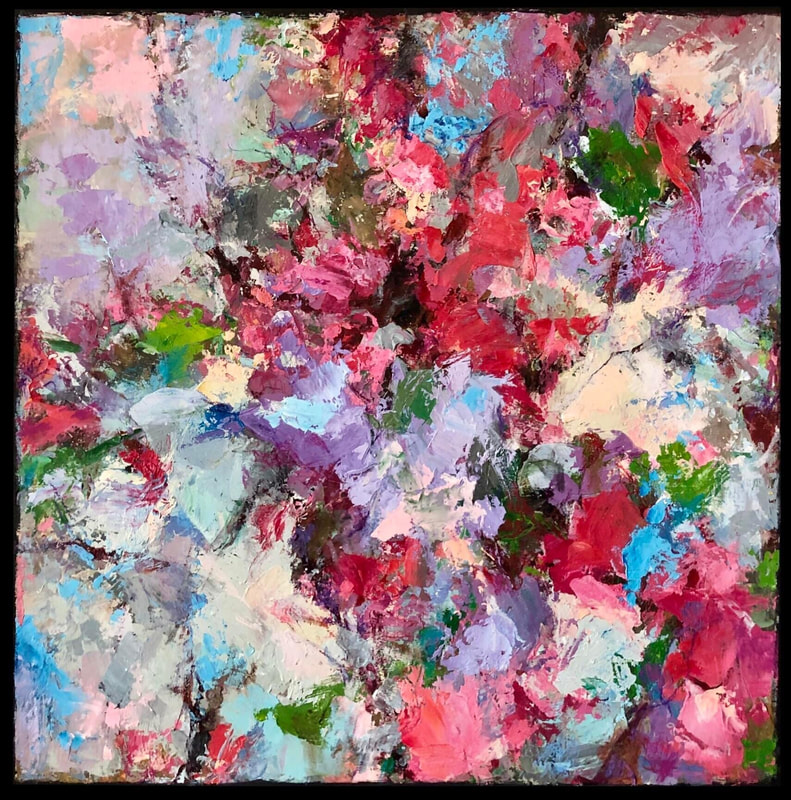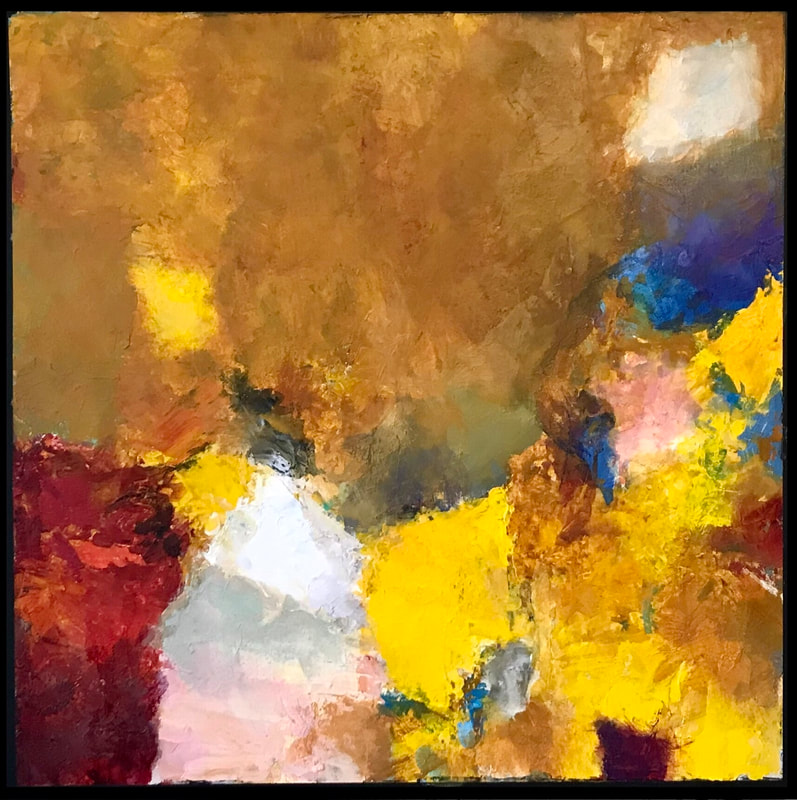One reason making paintings suits me well is the “forgiving” nature of the materials. Paintings can be almost endlessly reworked; previous marks, passages, even layers can be scraped away, and new ones redrawn, built up, accents added or emphasis shifted. I do this continuously when first involved in creating a painting. One benefit to not selling things is that by having older work around, I get to discover a few that can be made better. After decades of making paintings I’m more discerning about which ones can be improved, and how, and more willing to tackle them.
For me whether a painting sells does not measure its success. Prior to that possibility it’s about whether it has an engaging dynamic and offers a sustaining vitality to the viewer. In the arts, our work is a direct reflection of our integrity. Most of us strive to do and share our best (which may be why it’s so hard for some of us to meet deadlines or call a work done). Considering how I might improve a painting seems an ongoing part of the discipline.
A light analogy might be to imagine preparing and sharing a dish one has invented. It’s tasty and folks enjoy it. Afterward, when time allows, you try adding new ingredients or spices, maybe change a few proportions and discover this makes it especially delicious. Rather than serve the adequate recipe, I suspect most of us would prefer to offer the more satisfying improved version to our guests.
There’s a mild risk involved—it’s possible to take a reasonably successful work and through revision, end up with a less desirable mess. Yet pushing to excel seems integral to all in the arts. I feel I’m more successful with revisions as I age, but it’s frustrating that I still can get in the way of the process during the original creative effort. Sometimes I get too excited or rigid about directing where a painting should head. Or contrarily, I may lose focus while in the creative act, and waste time going through the motions without being sensitive to the process or the whole. In either case I’ve tuned out what’s trying to emerge or come to life in the painting, preventing the inherent harmony and vitality from shining.
It seems to me if we are genuine in our endeavors, to some degree the energy we put into our work will reflect who we are. As our tendencies are revealed in our art, correspondingly, sometimes our art can reveal habits and tendencies in our life. Sometimes we are in the flow of life beautifully. Other moments I’ve seen my desire to help or to “solve” what I see as a problem, disrupt the flow in my relations with another. As with paintings, driven by my enthusiasm, its easy for me to eagerly dive in, only afterwards realize best intentions don’t always make for the best, harmonious results. Or my ego-driven assertiveness, interwoven with my dogged persistence, can insensitively ignore the inherent beauty of the moment, or overshadow another’s opportunities to grow. It’s tricky to learn to step back and let things unfold.
Being too near or physically close to a painting for too long while working on it obscures the overall effect. Often after intense effort, it’s only when I’ve paused and get back that I really see the dynamic at play. Similarly, sometimes in my impatience to assist someone, I realize afterward how my heavy-handedness has precluded really hearing their voice, or being sensitive to the fuller circumstances beyond my own vision. When I lose objectivity in looking at a painting, or while engaged in a friend’s concern, if I get wrapped up in my view of what ought to be, it truncates everything. When I listen more deeply and openly (to the painting or the person), taking in the view without filtering things through pre-ordained ideas, the path ahead is inevitably smoother and things move naturally toward a sustaining resolution. It’s about being actively engaged in the conversation without directing it. I’m trying to be a bit more judicious about the need to contribute, to listen attentively without adding commentary; to allow the beauty of what is, be.
Visual art’s helpful that way — the trail of the process in a painting can document a physical record of emotions in the making. It’s another way to look at art that goes within and beyond the subject matter depicted. Though some artists put down each stroke just as they wish, because I encourage letting things happen, I’m generally less precise. So I tend to bring paintings to fruition through “trial and redo.” I can put down color after color until the tone is just so, or collage a section and move it in a whole new direction. Regrettably, our exchanges in life, person to person don’t always allow for do-overs.
So in terms of disciplines, it’s good I’m not an aircraft pilot or surgeon — I am more suited to the pursuit of learning through the malleable tableau of discovery that’s my way of painting. In terms of disciplining my self, the arts offer a helpful, endless training ground for refining life habits. I’m certain I’ll still make some paintings muddy through my impatience, or might lose track of an unforced harmony by nudging things in a narrow direction. Just as I’ll also doubtless still have occasional interactions where my insensitivity intrudes on another’s sweet song. I suppose at times it may even seem I’m unconsciously expecting my friends to be as forgiving as my paintings — which is of course very selfish of me and unfair to them. All I know to do is keep aiming to be aware in the moment, and hopefully through attentive witnessing, allow paintings, and others to blossom.
.


 RSS Feed
RSS Feed